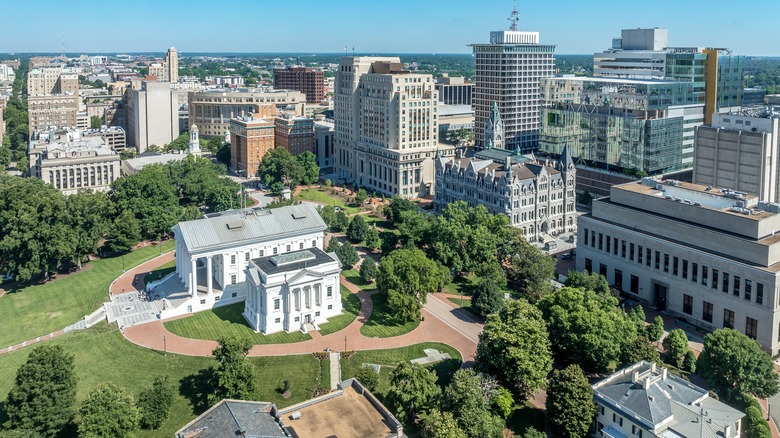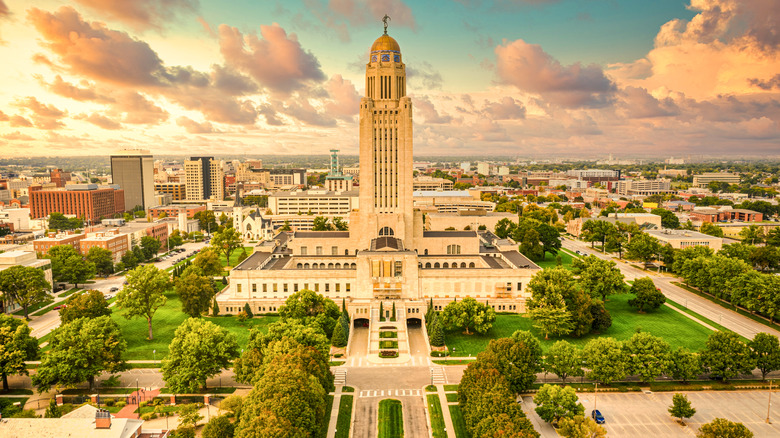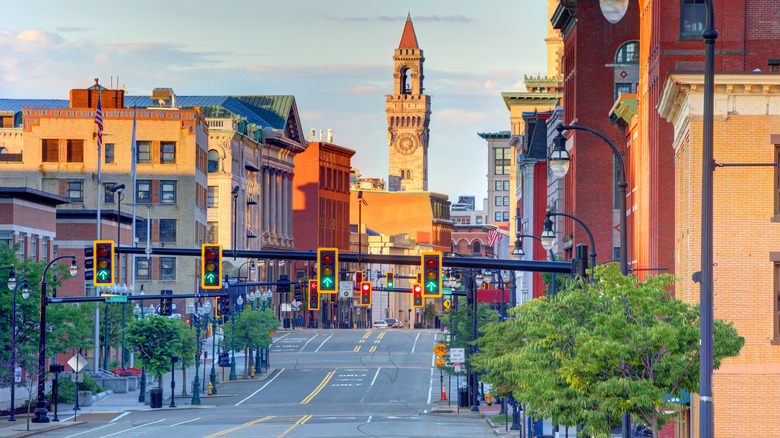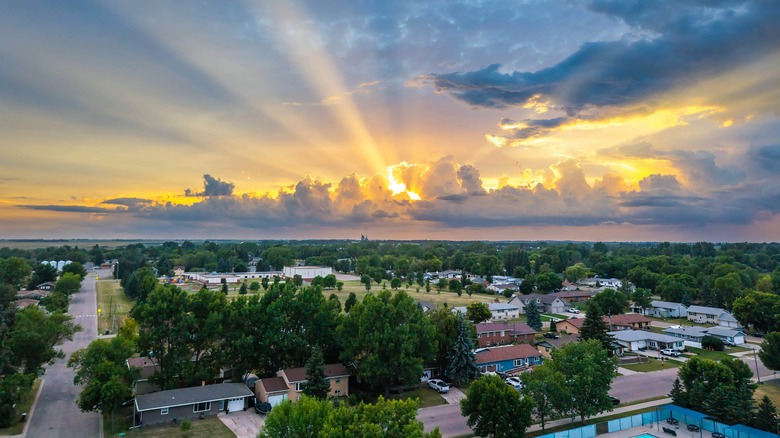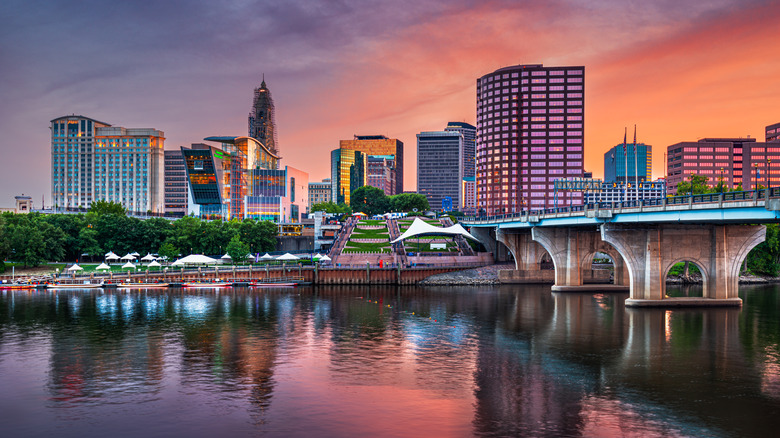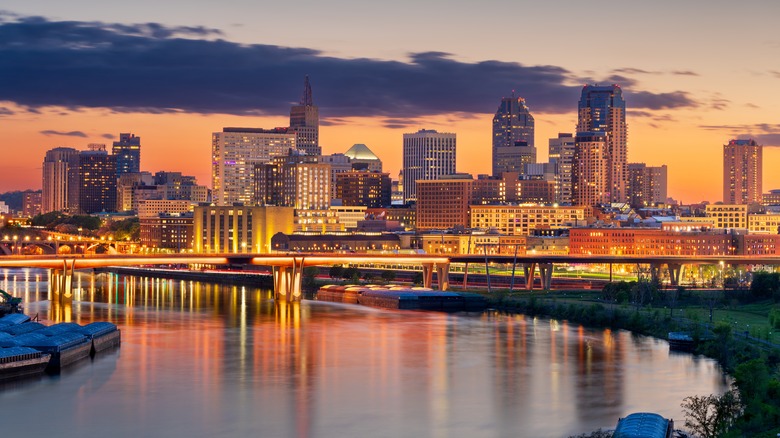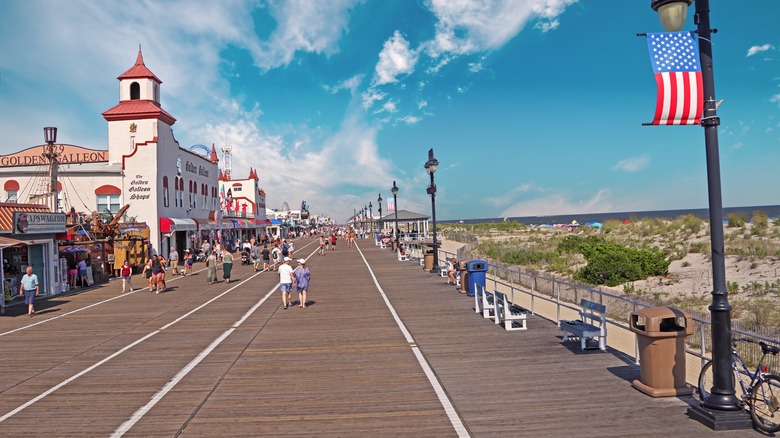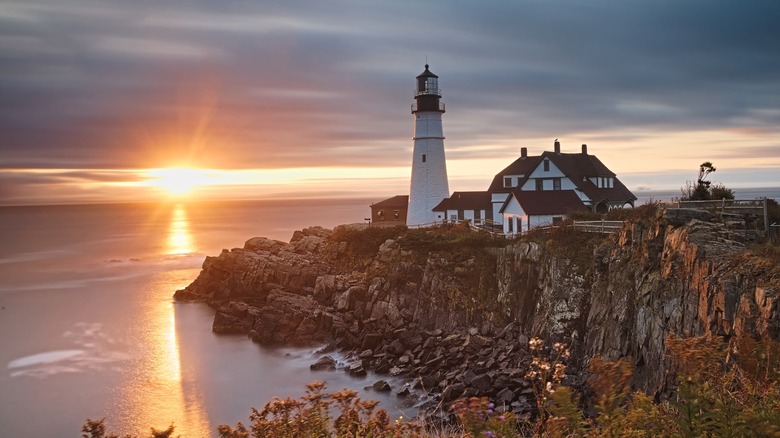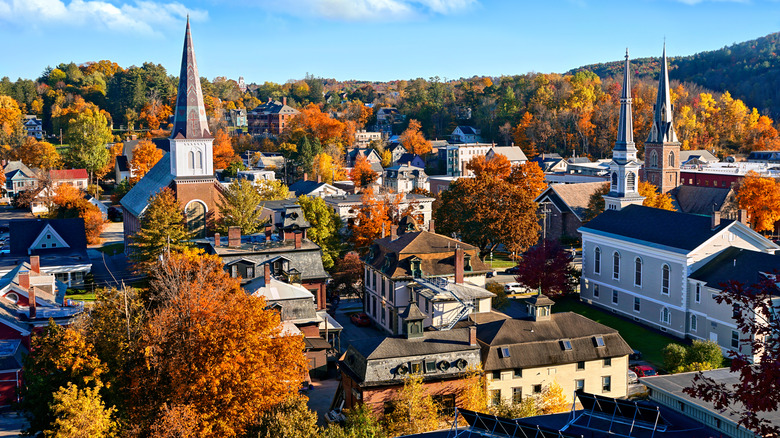The 10 Best States To Live In 2025, According To A New Report
CNBC's latest Quality of Life analysis ranks every state on things that matter when you're not on holiday, such as healthcare, economy, safety, and education. Here's where it gets interesting. The winners are not just the usual coastal suspects. Yes, Massachusetts and Connecticut score because of their superb hospitals and high-performing schools. Vermont, of course, continues to sit on its mossy throne, all clean air and low crime. But Nebraska and North Dakota make the list. Calm and stubborn Maine sits near the very top. Remember that quality of life is not only related to money but also about whether you feel safe, cared for, and not stuck in traffic for an eternity. Affordability is the fault line running through America right now. Some states on this list will punish your wallet — Hawaii, New Jersey, California — with home prices and grocery bills that are like a prank.
Others are shockingly attainable, including parts of the Midwest and Plains. The trade-off? Well, harsher winters, more driving, and fewer late-night sushi options. Still, that's a deal many people are willing to make for peace and access to a doctor when they need one. So, if you aspire to security, health, stability, and a chance at financial breathing room, check these specific corners of the map. This countdown highlights the states that deliver the best all-around value for you and your family. Some you'll expect, while others may surprise you.
Virginia
Virginia might not have the extravagant reputation of Florida, but it constantly performs well across every important metric. Hence its landing number 10 in the CNBC study. In the north, find Arlington, among the happiest and healthiest counties in America, then head west to discover the serene, misty spine of the ancient Blue Ridge Mountains. A long ribbon of Atlantic sand, Virginia Beach offers a bustling life where you can appreciate American history in your daily commute — namely Jamestown and Yorktown just down the road. On costs, the state's eye-wateringly expensive, with median home prices soaring between $664,000 and $770,000 according to Virginia Realtor. Yet, in Roanoke, it's a far more palatable $456,000. In Virginia, rest assured –– the state healthcare system ranks #14 in the country according to the Commonwealth Fund and earns recognition as a top five for patient hospital safety.
Furthermore, violent crime rates are commendably low, with 218 incidents per 100,000, according to USAFacts — the 9th safest. Food-wise, your bill is refreshingly fair. On average, residents spend about $260 a week on groceries, apart from the money spent on fast food. With recreation, Virginia provides something for everyone. The Appalachian Trail in Shenandoah National Park; the wineries around Charlottesville; Colonial Williamsburg and Jamestown; all of them are within reach and possess unique beauty and magnetism. Here's the catch: 46% of Virginia's major roads are in poor or mediocre condition, a hidden tax costing the ordinary driver an extra $715 every year in vehicle repair. And if you live in the northern part, you'd be dealing with some of the worst traffic jams in the United States.
Nebraska
Be honest, when you think about dream destinations, Nebraska isn't the first place that pops up. If so, you're likely picturing endless cornfields and, well, more cornfields. But don't judge a book only by its farm cover. Affordability is Nebraska's headline. WalletHub ranks the state #4 for having some of the lowest housing costs in the U.S., with the median home price at just $304,800 — a breath of fresh air. And for renters, a full-time worker only needs to earn $20.32 per hour to afford a two-bedroom apartment. This affordability persists at the supermarket. A typical person spends around $256.50 a month on groceries, 3-4% lower than the national average. Not a huge difference, but a few extra bucks by month's end add up. As for safety, between 2023 and 2024, Nebraska saw a massive 16.4% decrease in the overall crime rate — the single largest drop of any state in the nation.
The healthcare system is also reliable, ranking a respectable #24 by the Commonwealth Fund and #18 by America's Health Rankings. Infrastructure is Nebraska's secret weapon. U.S. News & World Report ranks it #1 because of its high-quality roads, short commute times, and a renewable portfolio that nearly doubles the country's standard. With leisure, the state offers the unique landscape of the Sandhills, Omaha's Henry Doorly Zoo & Aquarium, and the culinary scenes of Lincoln. Plus, you can go "tanking" — floating down a river in a galvanized livestock trough — a uniquely Nebraskan pastime. Family-related, Omaha and Papillion are lauded for their friendly atmosphere and close-knit sense of community, where you know your neighbors and kids still play outside. Want to migrate to Nebraska at 50? First, calculate how much you need to safely retire, then make your move.
Massachusetts
Moving to the Bay State means you prioritize access to the finest hospitals and universities, world-class museums, and centuries-old history. In 2024, Massachusetts ranked among the states with the best economies. So, no surprise it made CNBC's 2025 top list again. Its dynamism includes walking Boston's Freedom Trail in the morning and attending a biotech lecture at MIT in the afternoon. But let's not mince words. Living in Massachusetts is brutally expensive — it houses Wellesley, one of the 12 richest suburbs in the United States. Furthermore, WalletHub ranks Massachusetts 44th out of 50 for affordability; the typical home value is a staggering $702,400. The rental market is punishing as well. To afford a standard two-bedroom apartment requires an astronomical $45.90 per hour wage. The high cost of living continues on the shelves — buying groceries is around 4% pricier than the national average.
Massachusetts boasts the #1 healthcare system nationwide, according to the Commonwealth Fund, has the highest percentage of insured residents, and the lowest premature death rate. Safety is also a key strength there, ranking third for property crime rates. The public transportation network –– particularly the MBTA in Boston –– is staggeringly efficient. Be ready, drivers. Boston traffic is nightmarish, and about 49% of the state's major roads remain in poor condition. On recreation, Massachusetts offers everything from spending a summer weekend on Cape Cod or Martha's Vineyard to hiking the scenic Berkshire Mountains in the fall. And of course, historical and cultural Boston promises year-round entertainment.
North Dakota
North Dakota's high quality-of-life scores are rooted in tangible, everyday benefits that are rare elsewhere. The state constantly ranks among the best places to live in, landing #7 in CNBC's review and an impressive #3 in WalletHub's 2025 report. As of April 2025, the median home price stood at a staggeringly low $298,500—almost fictional compared to the national average of over $418,000. These reasonable costs help tenants too, who can rent a typical two-bedroom apartment for $960. Grocery bills are a financial breather as well, with weekly spending around $265.11 — even less when applying shopping strategies to save money. The income tax has a top rate of just 2.5%, and Social Security benefits are not taxed at all.
North Dakota delivers a solid healthcare structure, ranking a respectable #22 in the Commonwealth Fund's Scorecard. Enjoying safety is also part of the charm, as the state ranks #8 for violent crime (254 incidents per 100,000 people in 2024). Honesty is the best policy in transportation. You need a car. There's no sprawling subway system, although the roadway infrastructure is well-maintained. A July 2025 TRIP report noted that only 18% of the state's major roads are in poor or mediocre condition, but the trade-off is about $557 in extra repairs and fuel consumption. North Dakota is an outdoor paradise — an endless affair. Epic landscapes, zero crowds, a never-ending fishing season, trolling Lake Sakakawea, biking parts of the Maah Daah Hey Trail through the Badlands near Theodore Roosevelt National Park — you've got it all. And when snow falls, 2,800 miles of groomed snowmobile trails open up for a thrilling experience.
Hawaii
Hawaii landed on this list for its air and water grade, factors heavily weighted in CNBC's Quality of Life score. Also, because it's the happiest state in America, according to WalletHub. And no, it's not because everyone gets a lei at the airport. This happiness is linked to health. Hawaiians enjoy the longest average life expectancy in the entire nation, and their healthcare system ranks #2 by the Commonwealth Fund's 2025 Scorecard — only 4% of adults are uninsured. This commitment to well-being extends to public safety. Despite being a major global tourist destination, USAFacts reports that violent crime rates are at 218 incidents per 100,000 people, a downward trend over the past decade.
Quite fascinating too is the Aloha State's tax paradox. At first glance, the income tax (topping out at 11%) seems punishing. However, a closer look reveals that Social Security benefits and most pensions are not taxed at all. Plus, Hawaii offers the lowest property tax rate in the U.S. (0.32%). On recreational opportunities, absurdly abundant. The National Park Service shows 59 parks (state and national) across the five major islands, including the awe-inspiring Hawaii's Volcanoes and Haleakala National Parks. Now, let's address the elephant in the room. Living in Hawaii is breathtakingly expensive. As of September 2025, the median home price was $760,000, 40th place for housing costs, per Visual Capitalist. Daily expenses are also steep; the weekly grocery bill is a whopping $333.88, way higher than the $270 national average. Frequent dining out is almost unaffordable for the common mortal. But you can save money with some restaurant tricks.
Connecticut
Connecticut has cultivated a reputation for stability and excellence. CNBC's Quality of Life score places it at #5 due to stellar public safety. A Q1 2025 report from the Connecticut Department of Emergency Services and Public Protection shows a dramatic drop in crime compared with 2024: 16.8% in property crime, 31.7% in robbery, and 30.9% in vehicle theft. Another advantage, its public school systems are constantly ranked A-list in the country — 2nd-best by WalletHub and 10th by U.S. News & World Report — supported by internationally renowned institutions like Yale University. Regarding well-being, its healthcare service ranks #1 nationally for both child wellness and adult dental visits, which translates into better health outcomes and provides residents with invaluable peace of mind.
With mobility, in a 2025 analysis, the Regional Plan Association reported that nearly half of all households and two-thirds of all jobs are located within walking distance of a transit stop. But of course, living in the Constitution State will demand a large paycheck. The state ranks 46th in affordability. The median home price reached $415,300 in early 2025, with a seller's market pushing prices up 9.9% year over year. That's why you should think twice before selling your home. But income taxes are progressive and stay below 7%, and the state is phasing in tax exemptions for IRA distributions for many residents. In Connecticut, recreation is a respite. This land is steeped in history and culture, from the Mark Twain House to the Mystic Seaport Museum. More of an outdoor lover? Enjoy a walk along Long Island Sound, or hike at Gillette Castle and Talcott Mountain State Parks.
Minnesota
A winning formula involves a commitment to community welfare and health. Minnesota has both, thus landing a prestigious #4 on CNBC's list. After becoming one of the states with the best economies in 2024, you can now buy a house in the North Star State for just $363,300 — though this number may rise further closer to the Twin Cities metropolitan area. With the fifth-highest share of residents covered by health insurance, Minnesota stands as a national leader in healthcare access and outcomes –– powered by the world-renowned Mayo Clinic and ranking #3 in the nation for overall medical care quality. Safety is quite good, yet not elite. Violent crimes are rated at a moderate 257 incidents per 100,000 people, and property crime was around 1,606; however, within the metro zone, they remain substantially higher.
Infrastructure is a huge advantage for residents. Minnesota's road network is top-notch, with Consumer Affairs placing it #1 in the whole nation. If you plan to move there, the food costs are reasonable. The average household spends between $364 and $395 every month, depending on the city. But it's manageable. The Land of the 10,000 Lakes (the actual figure reaches 11,842) fully lives up to this nickname. Minnesota has more registered recreational boats per capita than any other state. Outdoor leisure activities are deeply woven into the cultural fabric, from fishing for walleye and boating on its countless lakes and rivers in the summer to cross-country skiing, snowmobiling, and a fervent devotion to ice hockey in the winter.
New Jersey
If your image of New Jersey comes from The Sopranos or a long stretch of industrial smokestacks, you need an update. The Garden State has silently transformed itself into a prime living destination, ranking #3 in CNBC's 2025 Quality of Life report. Nestled between the colossal New York City and Philadelphia, it flaunts a robust transportation network — the NJ Transit trains and buses and the PATH system — allowing residents access to high-caliber jobs and amenities while enjoying a spacious and relaxed suburban lifestyle. On safety, USAFacts considers New Jersey one of the safest states: low violent crime rates (218 per 100,000 people), strong financial security, and excellent emergency preparedness. Education in NJ is exceptional, boasting the #2 public schooling system, with 11 of its schools found in the top 100 nationally.
Also, higher studies find firm footing at the prestigious Ivy League Princeton University. Healthcare ranks #16 by the Commonwealth Fund with the second-lowest rate of premature deaths in the nation, confirming the quality and accessibility of its medical care. But great benefits bring substantial charges. The median home value is over $564,000, and the average resident spends nearly $64,000 annually on living expenses. Property taxes are among the highest, so the time of year to sell your house if you want the best price makes a difference in offsetting those costs. To ease the burden, the state offers some relief, like a $250 deduction for seniors and veterans and the Property Tax Reimbursement Freeze program for eligible adults. To relax, NJ is famous for its Jersey Shore, ideal for family-friendly boardwalks in Ocean City and the Victorian charm of Cape May. And naturalists can head to the stunning Delaware Water Gap or hike a 72-mile stretch of the Appalachian Trail in the northwestern corner.
Maine
In a world brimming with noise, stress, and uncertainty, Maine ascends as the quiet, confident answer. CNBC ranks it #2 in quality of life thanks to its clean air, moderate crime rates, and a strong record of civil rights protection. For retirees, the Pine Tree State stands as a magnet. Reasons include being ranked #2 nationally for security, #3 for medical care for seniors, and having a large established community of older adults, with 23% of the population aged 65 or more. While the median home price in January 2025 was $415,600, it's worth it since you're paying for mental ease. With safety, Maine is exceptionally secure. The FBI Uniform Crime Report reveals that the violent crime level is a stunning 72% lower than the U.S. average, and the murder rate is only 2 per 100,000. In terms of well-being, the state's healthcare sector holds the #3 spot in Bankrate's studies.
And hospitals like MaineHealth Pen Bay consistently receive "A" grades from the independent watchdog The Leapfrog Group, showing a commitment to excellent patient outcomes. In Maine, your backyard is a national park and your commute is a scenic byway. The iconic, rugged coastline stretches for thousands of miles, offering endless opportunities for kayaking, sailing, beaches, and visiting charming harbor towns. Inland, it is a wilderness paradise. Destinations including Acadia National Park and Baxter State Park — home of the formidable Mount Katahdin — invite fishing, hiking, and camping, activities deeply ingrained in the local culture. Just be aware that a car is essential for navigating the state; public transportation is limited. For retirees or remote workers without children, this state is the go-to option for a tranquil and productive lifestyle.
Vermont
In the annual battle for bragging rights, Vermont stands as the undisputed champion of quality of life. For five years in a row, CNBC has crowned the Green Mountain State #1, celebrating its clear air, low crime, and inclusive community ethos. This is a state so committed to natural beauty that it's one of only four in the country to ban billboards. Relating to safety, a violent crime rate of 219 per 100,000 people positions Vermont undeniably among the safest places to live. Healthcare is excellent too, ranking #8 by the Commonwealth Fund and #1 for seniors — though this quality comes with high insurance premiums. Vermont leads the nation in sustainable transportation policies, focusing on smart growth, public transit, and EV infrastructure for those with an eco-friendly life approach. If you love driving, enjoy your ride, as the roads are in great shape; only 13% are in poor or mediocre condition.
For leisure and recreation, this state is a four-season paradise. World-class skiing and snowboarding (the official state sport), hiking the 272-mile Long Trail, kayaking on its 800+ lakes and ponds, exploring its 55 parks, all central to Vermont's lifestyle. The cost of entry to this exclusive club, however, remains a little high. The median home price sits between $427,600 and $450,000 in a tight market, as the state is grappling with a severe housing crisis. By 2029, research estimates 36,000 additional homes will be necessary to meet the demand and stabilize prices. Vermont is for the purists who have the financial means, affluent remote workers, nature lovers, and anyone believing that a life free of billboards, crime, and pollution is a luxury worth paying for.

